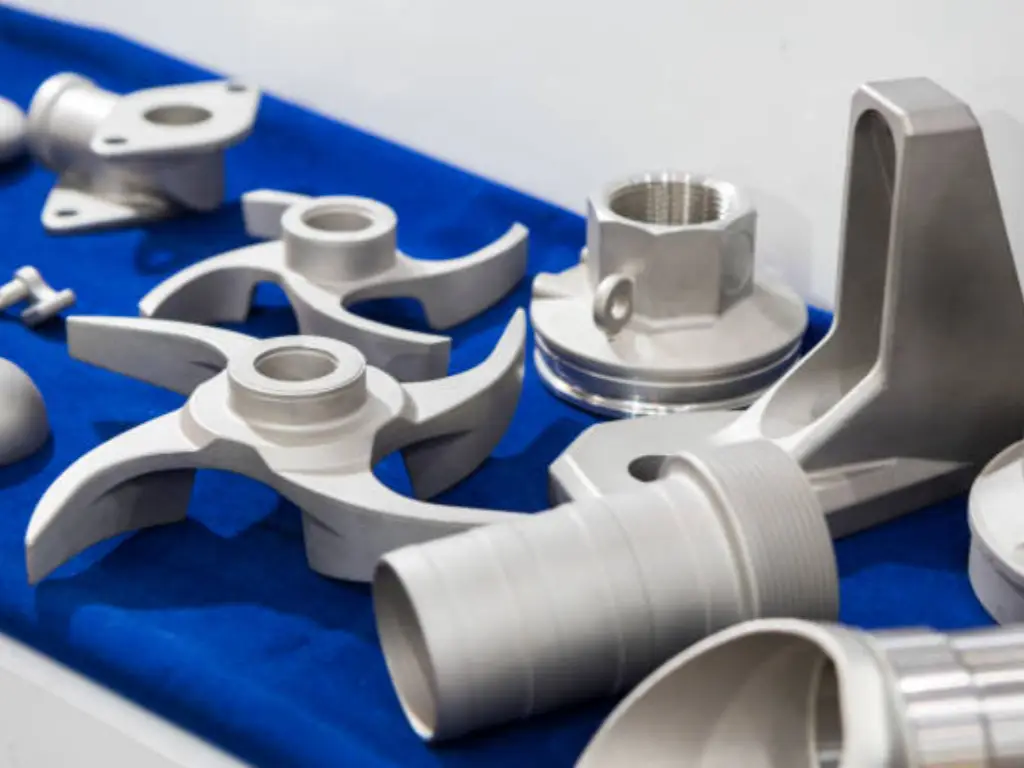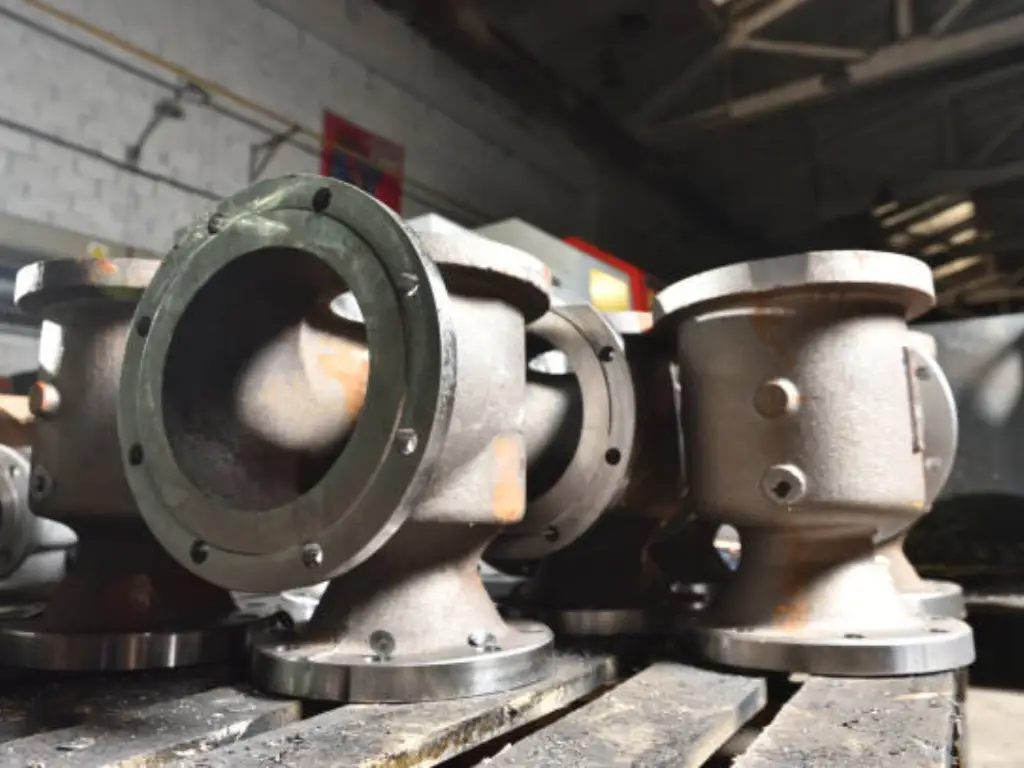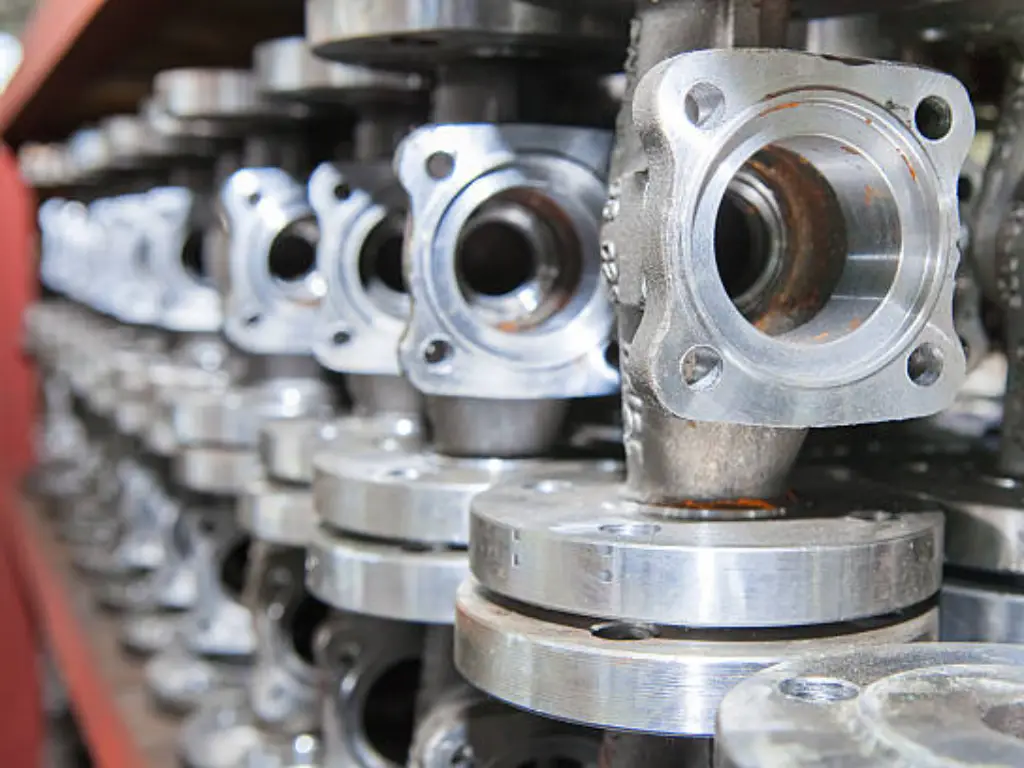Tool Steels
- Home
- Tool Steels
Tool Steels Overview
Tool steels are special alloys that are capable of withstanding high wear, high temperatures and mechanical stress, which are made up of carbon, chromium, vanadium, molybdenum and tungsten. BESSER offers precision investment cast tool steel parts, available in fully annealed RC 20 or hardened to RC 60, suitable for molds, cutting tools, and strong components in aerospace, automotive, and manufacturing industries.
Advantages of Tool Steels
High hardness & wear resistance
High temperature strength
Impact toughness
Dimensional stability
Enhanced machinability
Edge retention
Corrosion resistance
Various Tool Steel Alloys Features and Applications
Looking for quality tool steel castings? BESSER CASTING specializes in W-grade, O-grade, A-grade, D-grade, S-grade, and H-grade tool steel components for demanding applications. Our investment casting delivers superior hardness and wear resistance with tight tolerances. Need something specific? Contact our engineers for customized solutions backed by our 20+ years of expertise.
| Alloy Types | Features & Uses |
|---|---|
| A-2 | Air-hardening steel (HRC 63) with balanced machinability, toughness and wear resistance. Used for cutting tools, punches, dies, and gauges. |
| A-6 | High-carbon, high-chromium steel with superior wear resistance. Ideal for heavy-duty forming dies, cold extrusion tools, and industrial knives. |
| D-2 | High-carbon, high-chromium steel (HRC 65) with excellent wear resistance. Perfect for blanking dies, forming rolls, slitter knives, and long-run tooling. |
| D-7 | Enhanced abrasion resistance with higher carbon content. Used in deep drawing dies, thread rolling dies, and cutting tools for abrasive materials. |
| H-11 | Hot work steel with good red hardness and thermal fatigue resistance. Suitable for die-casting, extrusion dies, and cyclically heated components. |
| H-13 | Versatile hot work steel (HRC 54) with excellent thermal shock resistance. Popular for aluminum extrusion, hot forging dies, and pressure die casting. |
| S-1 | Shock-resistant steel with good impact strength. Designed for chisels, punches, and impact-loaded tools. |
| S-7 | Superior shock-resistant steel (HRC 61) with high toughness. Used in pneumatic hammers, coining dies, and extreme impact applications. |
| O-1 | Oil-hardening steel (HRC 65) with excellent dimensional stability. Preferred for gauges, shear blades, and precision cutting tools. |
| M-2 | High-speed steel (HRC 65) with excellent cutting performance. Used for drills, milling cutters, reamers, and high-performance tools. |
| P-20 | Plastic mold steel (HRC 32) with excellent polishability. Ideal for injection molds, die-casting dies, and applications requiring superior finish. |
Over 200 material grades developed and produced
Utilize international standards (GB, ASTM, AISI, DIN, NF, JIS, BS, AS, AAR, etc.) for material quality
Efficient resource utilization reduces production costs
Proven expertise in controlling alloy composition for better performance
Advanced SPECTRO spectrometers ensure precise chemical composition
Detailed reports provided with chemical composition and dimensional data
We Guarantee Optimal Alloy Formulation and Cost Control
FAQs About Tool Steel Casting
Get the answers you need about tool steel casting here.
What are tool steel castings?
Tool steel castings are precision metal components made from specialized high-carbon alloys using investment casting processes. They’re engineered for superior hardness and wear resistance in industrial applications.
How does tool steel compare to stainless steel?
Tool steel is significantly harder than stainless steel (58-68 HRC vs. 16-28 HRC) and offers better wear resistance and edge retention. However, it typically has lower corrosion resistance than stainless steel.
Is tool steel rust-resistant?
Most tool steels have limited corrosion resistance. While some grades contain chromium, they’re primarily designed for hardness rather than rust prevention. Surface treatments or specialized grades may be needed for corrosion protection.
Can you produce small batch orders?
Yes, we can handle both large-scale and small-batch production, ensuring flexibility in meeting the needs of different clients. We specialize in producing high-quality custom parts, whether in small quantities or for large-volume orders.
Do you offer post-casting services?
Yes, BESSER provides additional post-casting services, including CNC machining, surface treatments (like polishing, electroplating, and coating), and heat treatment, to meet specific client requirements.
Related Articles
Top Stainless Steel Casting Manufacturer for Your Needs
December 3, 2025
No Comments
Gate Valve Parts Guide: Anatomy, Functions, and Manufacturing Quality
December 2, 2025
No Comments
Valve Parts Guide: Anatomy, Functions, and Manufacturing Quality
November 28, 2025
No Comments




